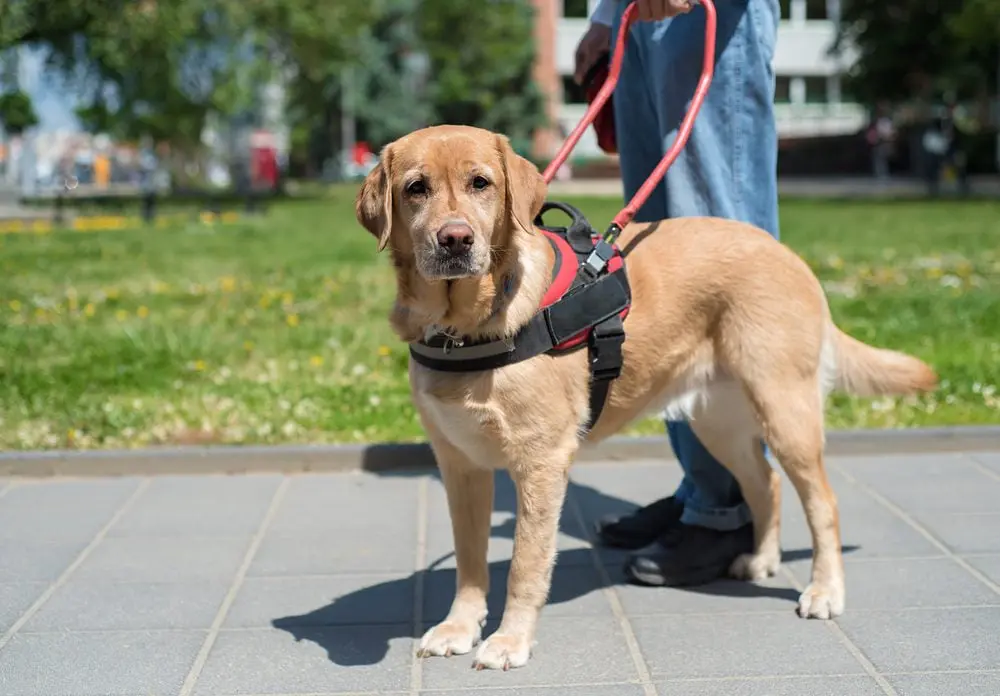Pennsylvania has a long history of valuing the human-animal bond. The state boasts a vibrant network of animal shelters and rescue organizations, and its residents are known for their love of furry companions. However, questions sometimes arise regarding responsible pet ownership, particularly concerning outdoor confinement.
One common practice that sparks debate is tethering, or chaining, dogs outside. While some view it as a harmless way to allow dogs some outdoor time, others raise concerns about animal welfare. This article dives into the legal side of tethering in Pennsylvania and explores responsible pet ownership practices.
Pennsylvania’s Tethering Laws
Pennsylvania has specific regulations regarding tethering outlined in Section 4016 of the Pennsylvania Crimes Code. This section focuses on preventing animal cruelty by ensuring dogs tethered outdoors have access to basic necessities and are not subjected to unreasonable restrictions.
Here’s a breakdown of key aspects of the law:
- Unreasonable Restraint: The law prohibits tethering a dog in a way that unreasonably limits its movement. This means the tether should allow the dog to turn around comfortably, lie down, and access food, water, and shelter.
- Access to Food, Water, and Shelter: Tethered dogs must have constant access to clean, fresh water and appropriate food. Additionally, they must be provided with shelter that protects them from the elements, including shade from direct sunlight in hot weather and a dry, insulated structure during cold spells.
- Unsafe or Unsanitary Conditions: Tethering a dog in unsanitary conditions, like areas filled with feces or near hazards, is strictly prohibited. The tethering area should also be free of dangers like electrical wires or potential entanglement risks.
- Tethering Duration in Extreme Weather: Perhaps the most crucial aspect of Pennsylvania’s tethering laws concerns extreme weather conditions. Leaving a dog tethered outside for longer than 30 minutes in temperatures exceeding 90 degrees Fahrenheit or below 32 degrees Fahrenheit is considered a presumption of neglect. This means that if authorities find a dog tethered in such conditions for extended periods, the owner can be presumed to be neglecting the animal’s well-being.
It’s important to remember that these laws prioritize animal welfare. The tethering regulations are designed to ensure that dogs kept outdoors have a safe and comfortable environment, even if tethered for short periods.
Potential Consequences of Violating Tethering Laws
Violating Pennsylvania’s tethering laws can result in legal repercussions. Fines for first offenses can range from $25 to $300, with potential increases for subsequent offenses. In more severe cases, animal cruelty charges could be pressed, leading to harsher penalties.
Beyond legal consequences, tethering a dog in violation of these laws raises ethical concerns. Dogs are social creatures who thrive on companionship and interaction. Chaining them outside for extended periods, especially in harsh weather, can cause significant physical and emotional distress.
Responsible Tethering Practices (if applicable)
It’s important to acknowledge that there might be rare situations where tethering a dog briefly could be permissible, as long as all legal guidelines are strictly followed. Here are some key points to consider:
- Strict Adherence to the Law: Even in these rare instances, ensure the tethering adheres to all legal requirements outlined above. This includes providing proper access to food, water, and adequate shelter at all times. The tether length should allow for comfortable movement, and the duration must be limited, especially in extreme temperatures.
- Supervision is Crucial: Tethering should never be a substitute for proper supervision. Even briefly tethered dogs require regular checks to ensure their well-being and safety.
- Temporary Solution Only: Tethering should be viewed as a temporary solution, not a primary means of containment. Ideally, dogs should have access to a fenced-in yard or be brought indoors whenever possible.
Alternatives to Tethering
There are several humane and effective alternatives to tethering that prioritize both a dog’s safety and its need for exercise and socialization. Let’s explore some viable options:
- Fenced-in Yards: A secure fenced-in yard provides dogs with significantly more freedom and space to explore and expend energy. This is the most ideal scenario for pet owners with outdoor space.
- Indoor Enclosures or Crates: For smaller living spaces or dogs who might not be suited for an open yard, indoor enclosures or crates can offer a safe and secure space. However, it’s crucial to choose an enclosure appropriate for the dog’s size and breed, and ensure they have ample time outside the crate for exercise and interaction.
- Walking on Leash: Regular walks on a leash provide dogs with much-needed exercise, mental stimulation, and opportunities for socialization with other dogs and people. This is a fantastic way to bond with your furry friend and fulfill their exercise needs in a controlled environment.
Conclusion
Pennsylvania’s tethering laws prioritize the well-being of animals. By understanding these regulations and opting for alternative containment methods, pet owners can ensure their dogs live happy, healthy, and fulfilling lives.
Here are some additional points to remember:
- Always prioritize your dog’s well-being: Weather conditions, your dog’s breed and temperament, and the overall environment should all be considered before tethering.
- Seek professional guidance: If you have questions about appropriate containment methods for your dog, consult with a veterinarian, animal trainer, or local animal shelter.
- Report suspected animal cruelty: If you witness a dog being tethered in violation of the law or suspect animal cruelty, don’t hesitate to contact your local animal control agency or the Pennsylvania SPCA.
Resources:
- Pennsylvania SPCA: https://www.pspca.org/
- Pennsylvania Department of Agriculture: https://www.agriculture.pa.gov/ (Animal Health & Safety section)
- American Society for the Prevention of Cruelty to Animals (ASPCA): https://www.aspca.org/
By following Pennsylvania’s tethering laws and exploring alternative containment methods, we can ensure all dogs in the state have the opportunity to live happy, healthy lives with their loving companions.



